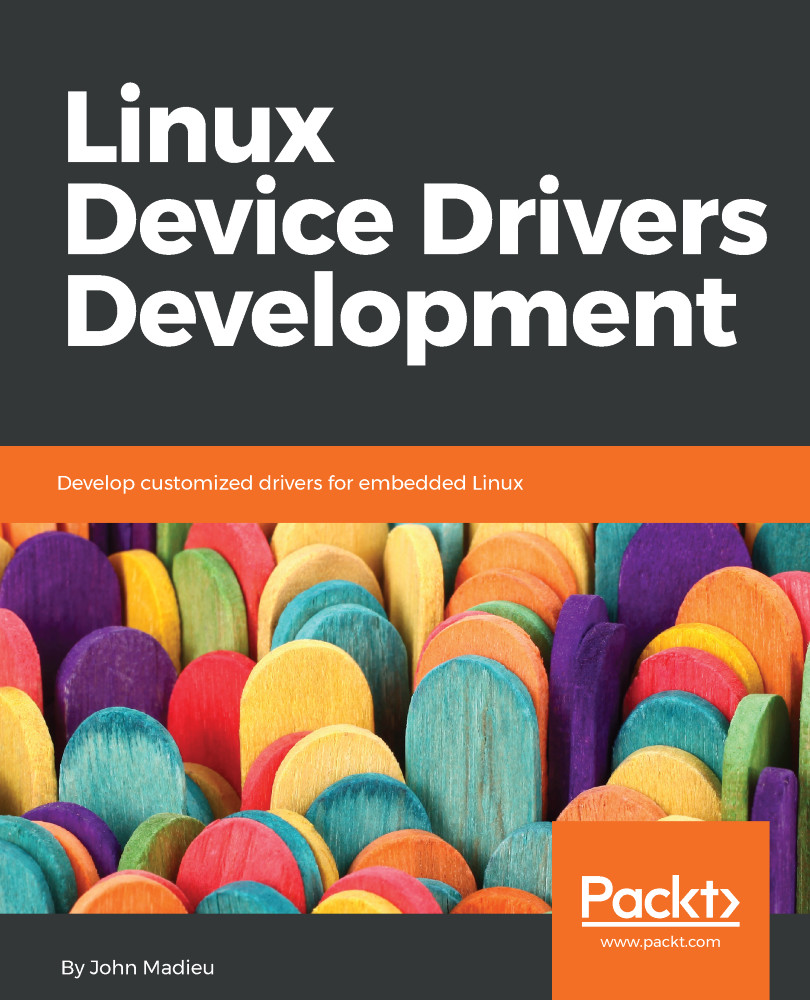The kernel is a standalone piece of software, as you'll see in this chapter, that does not make use of any C library. It implements any mechanism you may encounter in modern libraries, and even more, such as compression, string functions, and so on. We will walk step by step through the most important aspects of such capabilities.
In this chapter, we will cover the following topics:
- Introducing the kernel container data structure
- Dealing with the kernel sleeping mechanism
- Using timers
- Delving into the kernel locking mechanism (mutex, spinlock)
- Deferring work using a dedicated kernel API
- Using IRQs


